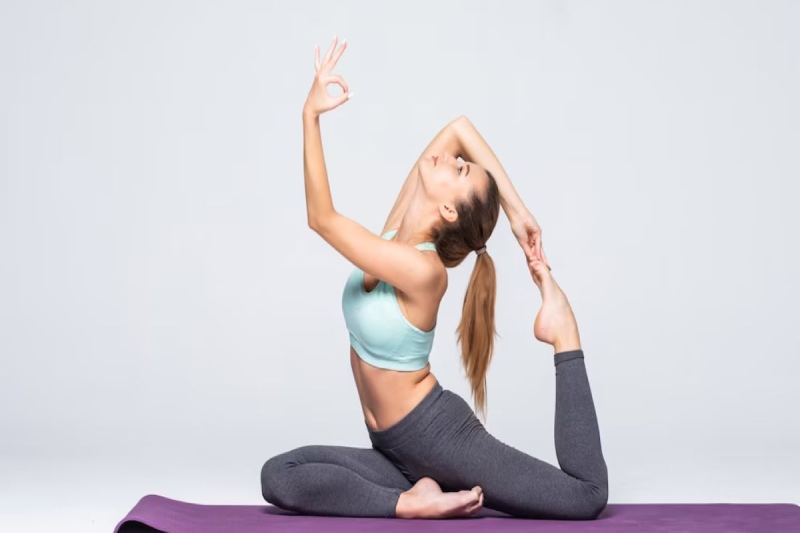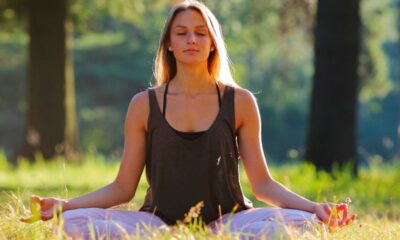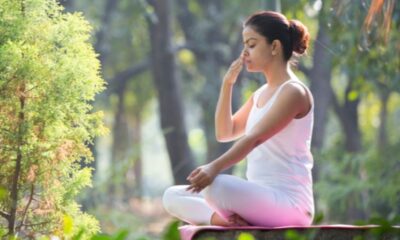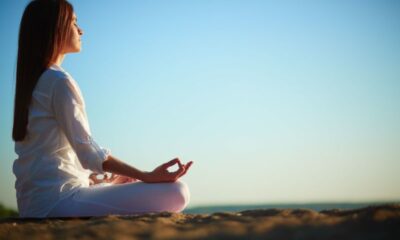Stress levels have surely increased in the US, Europe, and around the world as a result of recent global events (such as the Covid-19 outbreak and horrific incidents that have occurred everywhere). Yoga is one alternative therapy that can be used in addition to traditional psychotherapy to help reduce stress and symptoms of anxiety and sadness. There seem to be a lot of current academic research papers that look at the possible benefits of yoga, maybe partly in response to the growing stress levels in the world.
Promising research from 2024 has shown that yoga may be a suitable supplemental therapy to help with well-being enhancement. It may also have positive benefits on social connectedness and sleep quality.Promising research from 2024 has shown that yoga may be a suitable supplemental therapy to help with well-being enhancement. It may also have positive benefits on social connectedness and sleep quality.
Various Styles of Yoga for Every Preference
There are many different types of yoga, and there is a practice to suit every taste and desire. Hatha yoga is the term used in the West to describe a variety of gentler, slower-paced yoga styles. Even more slowly paced, restorative yoga is designed to help you unwind and heal. Then there are vinyasa and hot yoga courses, which are more athletic and intense forms of yoga. But there are also other types of yoga: from Yin Yoga, which holds the poses (called “postures”) for extended periods of time, to more conventional yogic practices like Kundalini, which combines spiritual and physical aspects. Fortunately, practicing yoga in the comfort of one’s living room is no longer necessary, especially in light of the Covid-19 pandemic.
Yoga for Mood Enhancement and Stress Reduction
According to three recent research (2024), yoga dramatically increased emotions of wellbeing and decreased stress. According to a recent study that was published in the Acta Psychologica journal in March 2024, people who practiced Sudarshan Kriya Yoga (SKY), a specific type of yoga that focuses on yogic breathing, showed a significant decrease in stress levels after the yoga intervention. Furthermore, the people who practiced this yoga shown improvements in their social connectedness ratings right after the yoga intervention, and these scores got better with continuing yoga practice.
According to a February 2024 online study published in Frontiers in Public Health, participants in Isha yoga, a different type of yoga, reported much lower levels of stress and mental distress in addition to higher levels of wellbeing than those who did not practice yoga. The Journal of Health Psychology, which published a study on a 6-week randomized controlled trial (RCT), the gold standard of research, also looked at the effects of yoga on well-being in January 2024. The study found that a Kundalini yoga intervention enhanced the participants’ spiritual well-being, self-compassion, and extrinsic affect—the capacity to express emotions.
Further Current Research on Yoga Corroborates These Results
Fascinatingly, a huge body of research that reviewed numerous yoga studies that was published within the past year supports the conclusions drawn from these three recent studies. A analysis of multiple studies revealed that practicing yoga reduced depressive symptoms in participants. Indeed, in one study looking at older persons during the Covid-19 pandemic, participants in the experimental (yoga) group reported lower levels of tension, worry, and sadness. When they practiced Hatha yoga, they also saw an improvement in their sleep. During the trial, the control group, who did not practice yoga, exhibited the reverse effect: their depression levels increased. Furthermore, a recent randomized controlled research that looked at the benefits of yoga as an adjunctive treatment for panic disorder also revealed improvements in quality of life and anxiety reduction.
When combined, the results of recent studies suggest that yoga could be a useful adjunctive or integrative therapy to help with the symptoms of anxiety and depression and to enhance emotions of wellbeing. Better sleep, stronger spiritual well-being, and more social connection seem to be additional advantages. I’m excited to see more yoga studies in the future since it has a lot of potential to enhance wellbeing as a supplement to counseling.

 Diabetology2 weeks ago
Diabetology2 weeks ago
 Diabetology7 days ago
Diabetology7 days ago
 Diabetology7 days ago
Diabetology7 days ago
 Diabetology4 days ago
Diabetology4 days ago
 Diabetology15 hours ago
Diabetology15 hours ago













